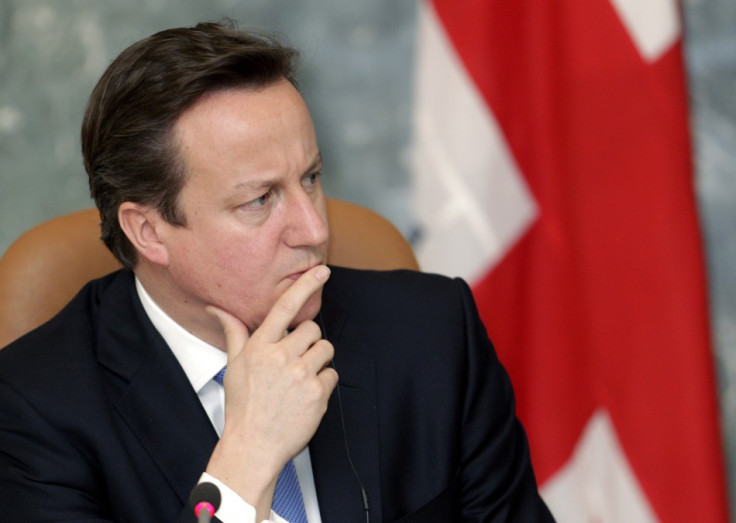Britain's Fiscal Watchdog Raps David Cameron's Austerity Claims

Britain's independent fiscal watchdog has issued a rare public rebuke to claims by Prime Minister David Cameron that his government's austerity policies are not the cause of the country's slow economic growth.
In a letter published by the Office for Budget Responsibility (OBR), a non-partisan department established by Chancellor George Osborne to assess the government's fiscal policies, chairman Robert Chote challenged the prime ministers' claim that it had declared the programme of tax increases and spending cuts "not responsible, in fact, quite the opposite" for Britain's flirtation with a triple-dip recession.
"For the avoidance of doubt, it is important to point out that every forecast published by the OBR since the June 2010 budget has incorporated the widely held assumption that tax increases and spending cuts reduce economic growth in the short term," the letter read.
"To date our forecasts have used multipliers that imply that every £100 of fiscal consolidation measures reduce GDP in that year by around £100 for capital spending cuts, £60 for welfare and £30 for income tax and National Insurance increases. We believe that fiscal consolidation measures have reduced economic growth over the past couple of years."
Last week the OBR warned that Britain would need much stronger tax revenue in February and March if it were to meet its borrowing target of £119.9bn for the 2012/13 financial year.
"To meet our autumn forecast would now require much stronger growth in tax receipts in the last two months of the year than we have seen since December or much lower-than-forecast expenditure by central or local government," the OBR said.
The OBR is the latest in a chorus of voices to challenge the so-called "Plan A" of Cameron and Osborne as the UK attempts to avoid its third recession in four years. Earlier on Friday, the retiring head of Goldman Sachs Asset Management, Jim O'Neill, told Bloomberg television that it was clear that strategy had failed.
"They've put themselves into a bit of a box. The strategy of the coalition, three years in, is 'let's cut debts,' and what has it done other than in fact not cut debts?" he asked.
"We're now into the second half of their office and it makes common sense for them that they cannot just carry on," he said. "Whatever they call it, they will shift the broad net fiscal stance because it doesn't seem to be delivering what they thought it would."
During a speech in York, however, Cameron struck a defiant tone and vowed to continue with his efforts to rebalance the economy.
"The very moment when we're just getting some signs that we can turn our economy round and make our country a success is the very moment to hold firm to the path we have set," he said.
"The path ahead is tough but be in no doubt the decisions we make now will set the course of our economic future for years to come. And while some would falter and plunge us back into the abyss, we will stick to the course."
The European Commission said in its winter economic forecast in February that it expected Britain's budget deficit to widen to 7 percent of GDP in 2013/14 financial year and saw overall government debt rising to a record 97.1 percent of GDP by the 2014/15 financial year.
"While the UK government sticks to its fiscal consolidation strategy, borrowing in the financial year to-date is higher than in the previous year mainly due to weak corporate tax receipts, linked to the temporary closure of the biggest oil field," the commission said.
The OBR said in December that it expected UK GDP to grow by 1.2 percent this year, 2 percent in 2014 and 2.3 percent in 2015.
The International Monetary Fund downgraded its forecast for UK GDP in February in its world economic outlook and now expects growth of 1 percent this year, and 1.9 percent in 2014.
© Copyright IBTimes 2025. All rights reserved.





















